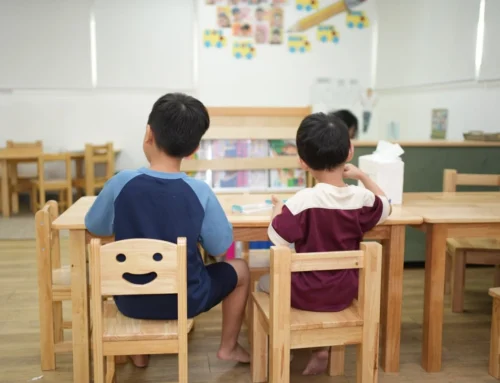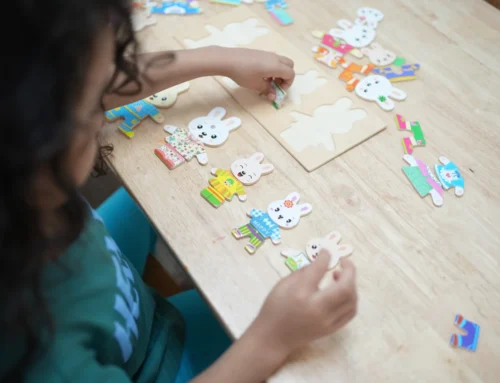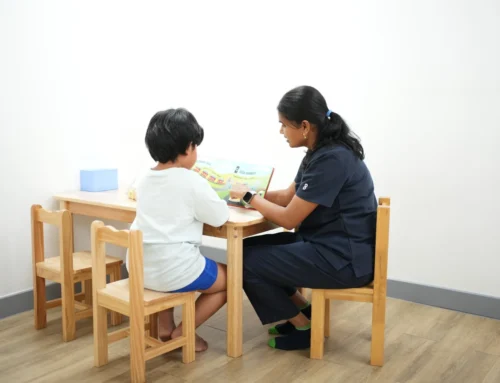Speech and language skills form the foundation of a child’s ability to learn, socialize, and express their thoughts clearly. In Cambodia, teachers play a critical role in nurturing these abilities—especially in inclusive and multilingual classrooms. Whether in preschools or international schools in Phnom Penh, teachers are often the first to notice speech delays and can provide essential support alongside professional speech therapy.
Early Identification: Teachers as the First Observers
Teachers interact with students daily, which allows them to spot early signs of speech or language difficulties. Children who struggle to follow instructions, form sentences, or pronounce certain sounds may benefit from further evaluation. By maintaining close communication with parents and collaborating with speech-language pathologists, teachers can ensure early intervention—leading to better long-term outcomes.
At OrbRom Center, speech therapists often emphasize how vital teacher observations are in recognizing when a child may need support. Simple classroom notes about pronunciation challenges, limited vocabulary, or frustration during communication can guide therapists in creating personalized intervention plans.
Creating Language-Rich Classrooms
Teachers can naturally support speech development through daily classroom routines. A language-rich environment helps children expand their vocabulary, practice turn-taking, and learn to express themselves with confidence.
Here are a few ways teachers can do this effectively:
-
Model clear speech: Speak slowly and clearly, emphasizing proper pronunciation.
-
Use visual supports: Charts, flashcards, and visual schedules reinforce understanding.
-
Encourage participation: Group discussions, storytelling, and singing allow all children to practice communication.
-
Include play-based learning: Activities like role play, building blocks, and sensory play promote spontaneous speech and vocabulary growth.
Many of these methods align with the strategies used in play-based speech therapy, showing how classroom learning and therapy can complement one another.
Collaboration Between Teachers and Therapists
Effective communication between teachers and speech-language pathologists (SLPs) ensures consistency across settings. Teachers can reinforce therapy goals during class by integrating exercises into regular lessons. For instance, if a student is working on producing certain sounds in therapy, teachers can create activities that naturally incorporate those words into reading or conversation time.
OrbRom Center’s speech-language services encourage collaboration between educators and therapists to support the “whole child.” By understanding the therapy objectives, teachers help maintain progress beyond the therapy room, ensuring speech goals are applied in real-life communication.
Supporting Confidence and Emotional Growth
Speech difficulties can affect more than language—they can impact a child’s self-esteem and social relationships. Teachers play an important emotional role by creating a supportive atmosphere where all children feel heard and valued. Encouraging peer understanding and celebrating communication milestones, no matter how small, helps build a child’s confidence.
Teachers can also incorporate social communication games or group projects that promote empathy and cooperation—essential life skills that benefit every student. Through these efforts, children who receive special needs intervention or speech therapy in Phnom Penh gain more opportunities to use their voices effectively.
Professional Development and Awareness
Ongoing teacher training in communication development makes a big difference. Workshops, school-based consultations, and shadowing sessions with speech therapists can equip teachers with strategies for managing speech and language challenges in the classroom. Understanding how to scaffold language, support bilingual learners, and respond sensitively to communication differences enhances both inclusion and learning quality.
In Cambodia, professional growth in this area is becoming increasingly important as schools embrace inclusive education models. Through continued collaboration with organizations like OrbRom Center, educators can access tools and insights to strengthen their students’ communication outcomes.
Conclusion
Teachers hold a powerful position in promoting speech development. Their daily interactions, patience, and awareness can help children communicate more effectively and confidently. By partnering with families and professionals at OrbRom Center, teachers in Phnom Penh can ensure that every child—whether in a preschool or an international school—receives the support they need to find their voice and thrive in learning.
We are the only Preschool specialized on children with special needs in PhnomPenh.
- Internationally qualified teachers
- Cambodia’s largest sensory room
- Outdoor swimming pool
- Covered outdoor playground
📞 Phone: 077.455.993
Telegram Link: https://t.me/OrbRom





